Reviewing Our Event: Cancer Screening and Diagnosis – Can Behaviour Change Communications Help?
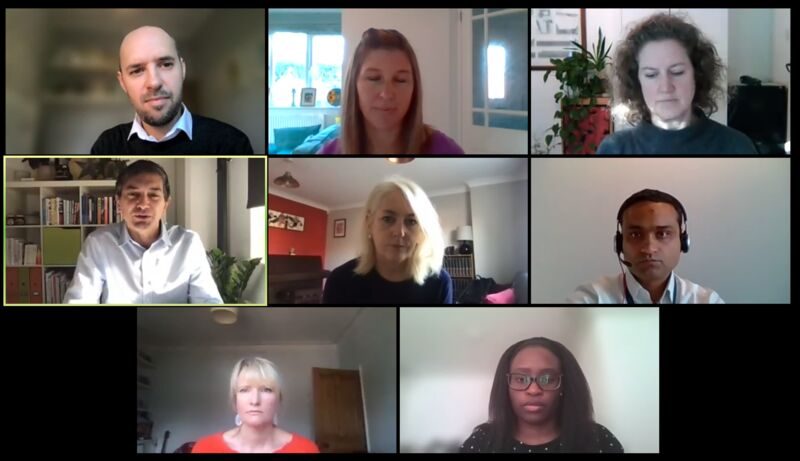
Over 100 cancer communications practitioners joined us for our November briefing event: Cancer Screening and Diagnosis – Can Behaviour Change Communications Help?
The purpose of the event was to share learnings and best practice about how behaviour change techniques can help to increase cancer screening rates and early diagnosis of cancer.
In recent years we’ve been involved with ground-breaking cancer screening and diagnosis projects including the YouScreen and Summit studies, the NHS-Galleri trial as well as providing campaigns advice for organisations such as NHS England, NCL Cancer Alliance and Jo’s Cervical Cancer Trust.
What’s the current situation with cancer diagnoses?
Opening the event, Claremont’s Founder and MD Ben Caspersz explained that the fallout from the pandemic has left the NHS at a critical time in terms of cancer diagnoses. Between March 2020 and February 2021 369, 000 fewer people in England than expected saw a cancer specialist to have potential signs of cancer investigated.
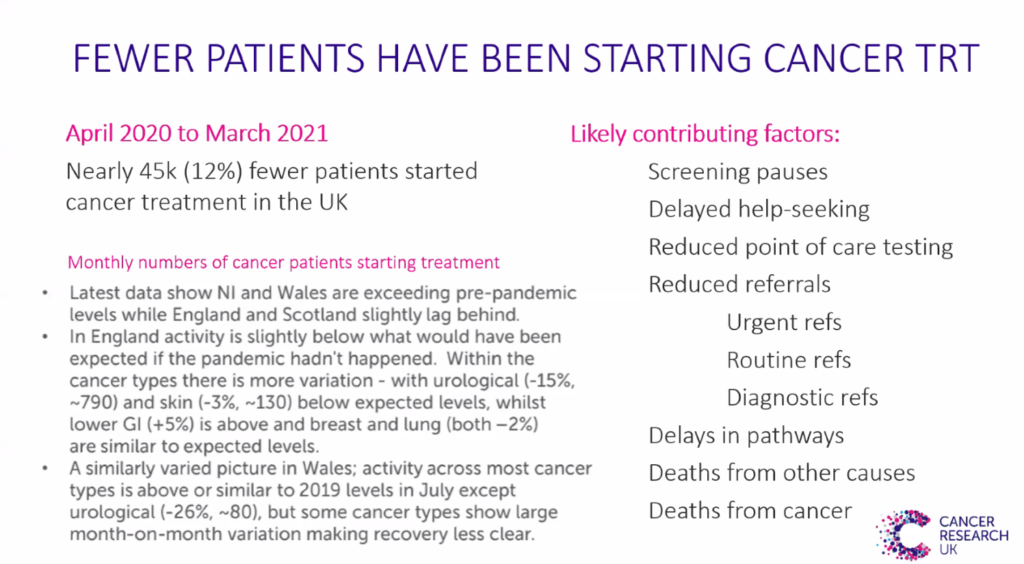
The first presenter, Dr Jodie Moffat, Head of Strategic Evidence and Early Diagnosis Programme Lead at Cancer Research UK (CRUK), focussed on the barriers to seeking help after spotting cancer symptoms.
In addition to common pre-existing barriers, such as fear of wasting healthcare professionals’ time, Jodie explained that additional barriers, such as difficulty in accessing appointments and concerns about exposure to Covid, have exacerbated reluctance to seek help.
Jodie finished her presentation with seven recommendations for how organisations can work together to help improve early diagnosis.
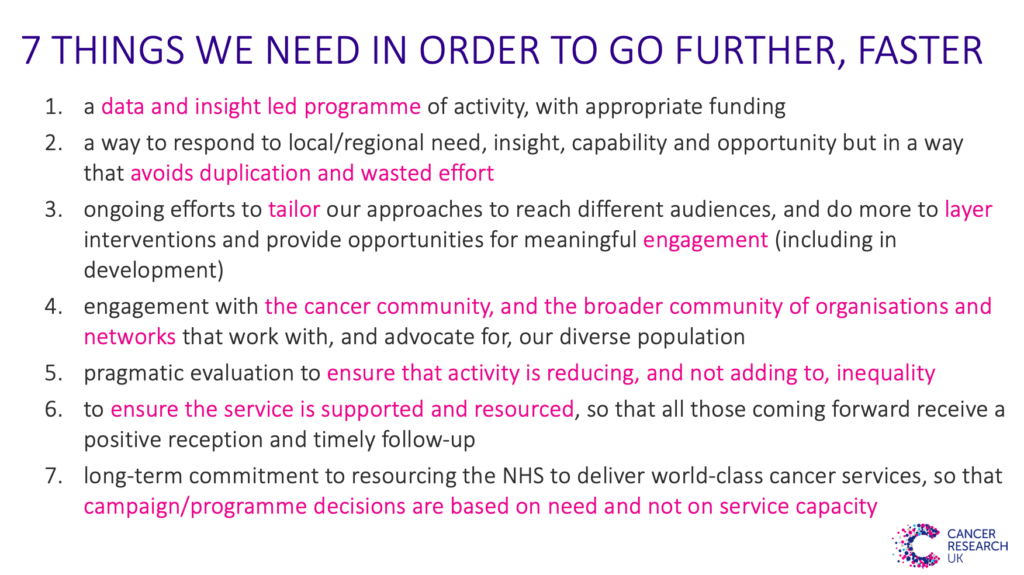
Naser Turabi, former Managing Director of the North Central London (NCL) Cancer Alliance joined Claremont’s Emily Davis to explain how community engagement was at the heart of a campaign in North Central London to encourage people with potential cancer symptoms to talk to their GP.
The campaign was based on four key principles: leveraging the national NHS ‘Help us help you’ campaign, localisation of messaging to make it relevant to the North Central London audiences, working in partnership with healthcare as well as voluntary and community services, and the importance of being honest about the challenges posed by Covid.
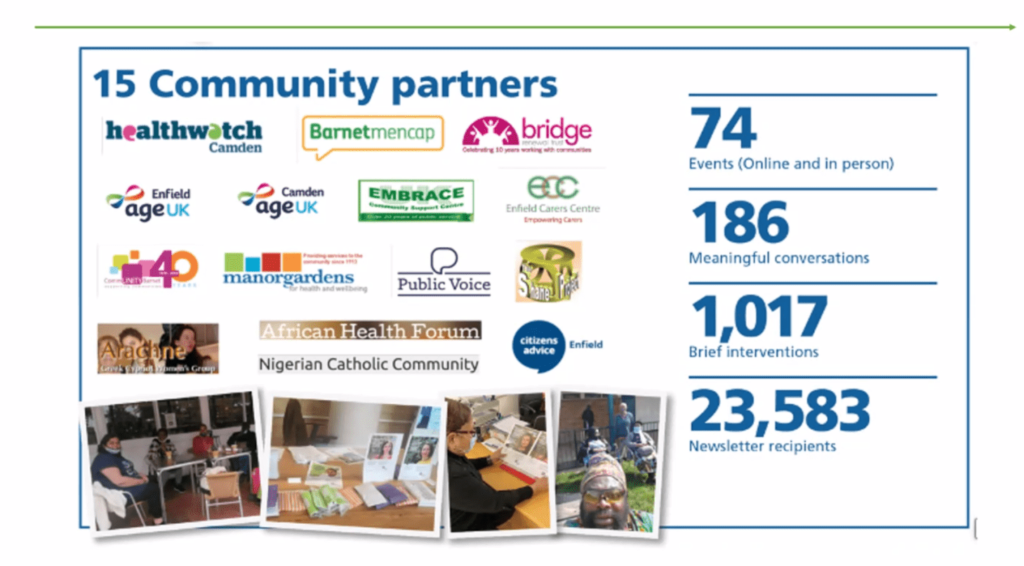
Community organisations were given resources and training to reach diverse communities with the campaign messages. The community organisations were given the autonomy to deliver the messages in the way that worked best for them, resulting in a wide variety of engagement techniques including 1-to-1 discussions, online events, Q&As with doctors, videos, posters and communications materials across a range of channels.
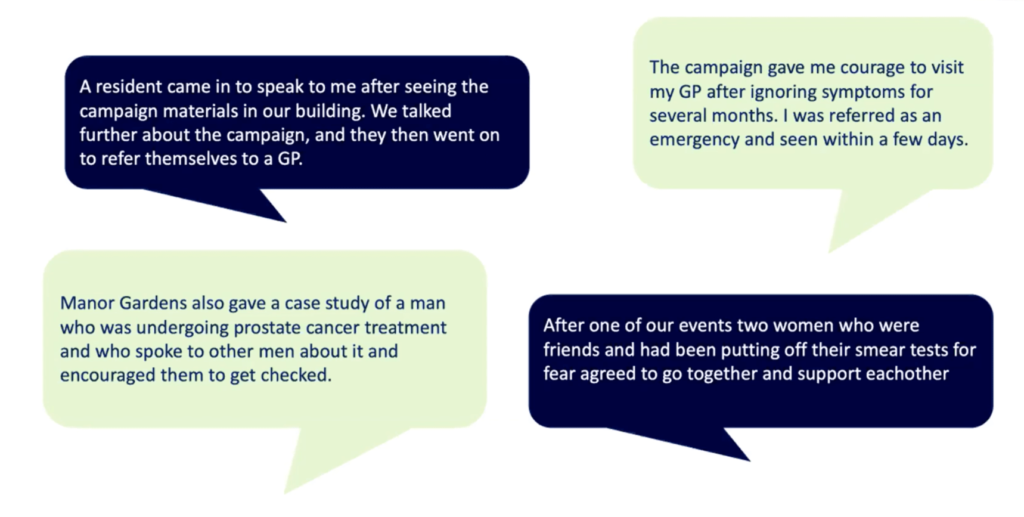
Sara Hiom, Director of Cancer Intelligence at Grail Europe, explained how behaviour change theory and comms have been used to set up the NHS-Galleri trial, which is trialling a blood test with the potential to identify 50 types of cancer.
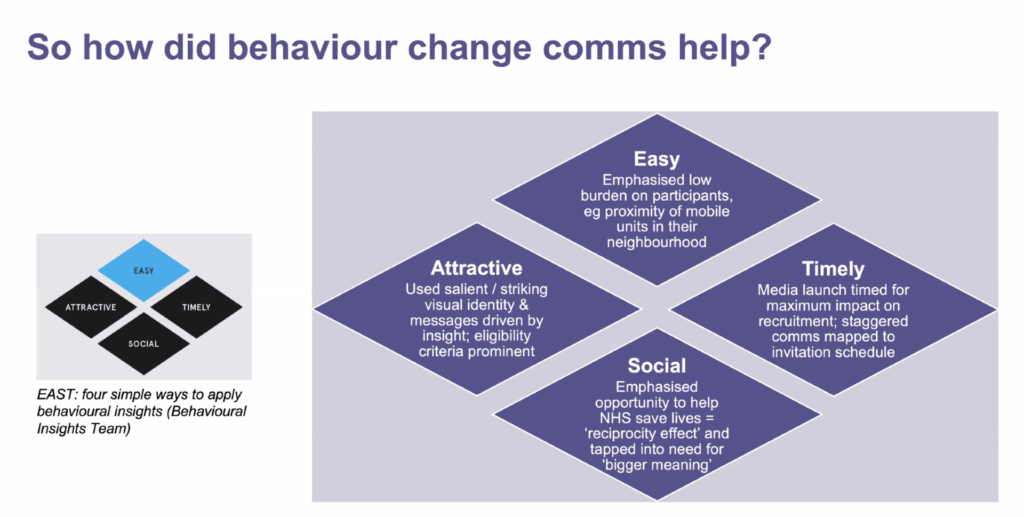
Claremont’s Ian Fannon went on to describe how audience insight was brought together with behavioural science to inform the development of campaign messaging and tone used in campaign materials as well as on the mobile screening units used in the trial.
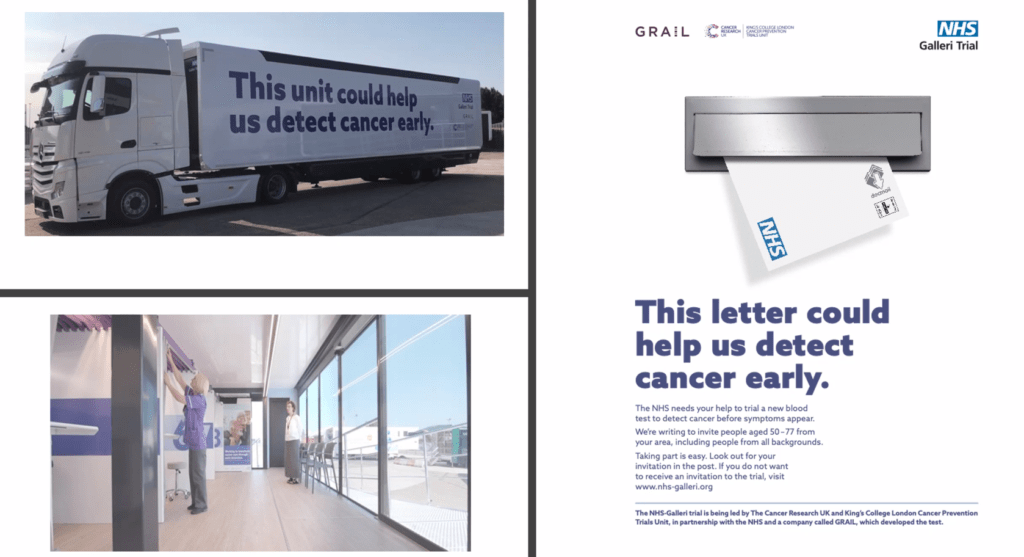
The presenters were joined by Professor Jo Waller, Reader in Cancer Behavioural Science at King’s College London, and Fanta Bojang, Programme Manager at the NCL Cancer Alliance, for a panel discussion.
The event concluded with the panellists outlining the most important elements of behaviour change theory and techniques in their work. This included the importance of clear objectives, audience insight, a robust evidence base, engaging messaging, the use of messengers and the importance of partnerships.
The full recording of the event is available below.
